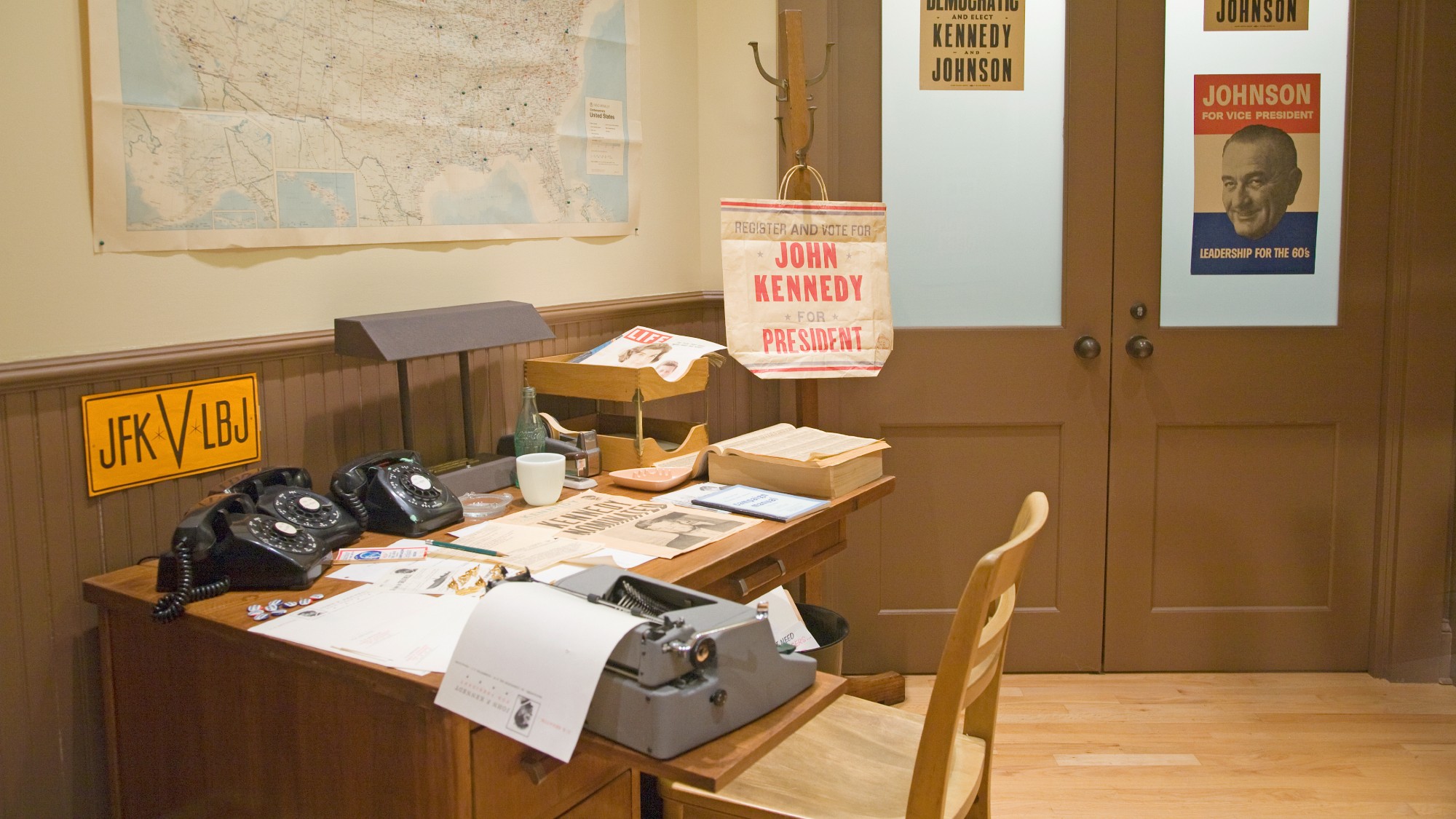How do presidential libraries work?
Building them is a 'giant undertaking'


A free daily email with the biggest news stories of the day – and the best features from TheWeek.com
You are now subscribed
Your newsletter sign-up was successful
Joe Biden is leaving the White House, but his work is far from done. The next task: building a presidential library.
Presidents construct libraries to "house their papers, records and historical markers," said USA Today. The institutions "cost millions of dollars," mostly funded with private money though state and local governments are also known to contribute. Biden's library might end up at the University of Delaware, which already hosts the records of his long senatorial career. He knows one thing for certain: It'll be a big job. "Apparently building the library is a gigantic undertaking," he said to USA Today.
Why did the presidential library system come into being? Too much stuff. The administration of Franklin D. Roosevelt during the 1930s saw a "dramatic increase in the volume of presidential papers," The National Archives said. Roosevelt announced his library in 1938 — with seven years left to go in his presidency — and Congress agreed to operate the library as part of the archive system. Together, the 15 presidential libraries contain "600 million pages of textual materials;,nearly 20 million photographs, over 20 million feet of motion picture film" among their collections, the Archives said.
The Week
Escape your echo chamber. Get the facts behind the news, plus analysis from multiple perspectives.

Sign up for The Week's Free Newsletters
From our morning news briefing to a weekly Good News Newsletter, get the best of The Week delivered directly to your inbox.
From our morning news briefing to a weekly Good News Newsletter, get the best of The Week delivered directly to your inbox.
Who owns the presidential records?
Presidential records were the "private property of the president" for much of American history, Congressional Research Service said in an overview. The result? Many historical papers were "lost, destroyed, sold for profit," said the Archives.
This changed during the post-Watergate era, when Congress passed the Presidential Records Act, which clarifies that White House documents "are the property of the United States" and are controlled by the National Archives and Records Administration. The agency head can then deposit those records in a presidential library if they deem doing so is "in the public interest," said CRS.
There have been questions about how well the system works. "Why does every president need a presidential library?" Jonathan Zimmerman said at WHYY in 2015. So many libraries are "wasteful, costing taxpayers millions of dollars every year." Those facilities can distort and put a gloss on sometimes-uncomfortable history because they allow the former presidents substantial control over how to "define their history and legacy." If all the records were kept in one place, "more Americans would be able to visit the facility," Zimmerman said.
How have presidential libraries changed?
The internet age has made a substantive difference. The Barack Obama Presidential Library is the "first fully digital presidential library," the institution says in an overview. Roughly 95% of the materials from that administration started as digitally formatted "photos, videos, word-processing documents" and other records. (There are also about 30 million pages of unclassified paper documents.)
A free daily email with the biggest news stories of the day – and the best features from TheWeek.com
Brick-and-mortar presidential libraries have not gone entirely out of fashion, though. Biden's team believes it will require "roughly $200 million to $300 million" to get his library operating, said The Wall Street Journal. Several institutions have expressed interest in hosting his library, including the University of Delaware, the University of Pennsylvania and Syracuse University. About which he will select: "I haven't made that decision yet," he told USA Today.
Joel Mathis is a writer with 30 years of newspaper and online journalism experience. His work also regularly appears in National Geographic and The Kansas City Star. His awards include best online commentary at the Online News Association and (twice) at the City and Regional Magazine Association.
